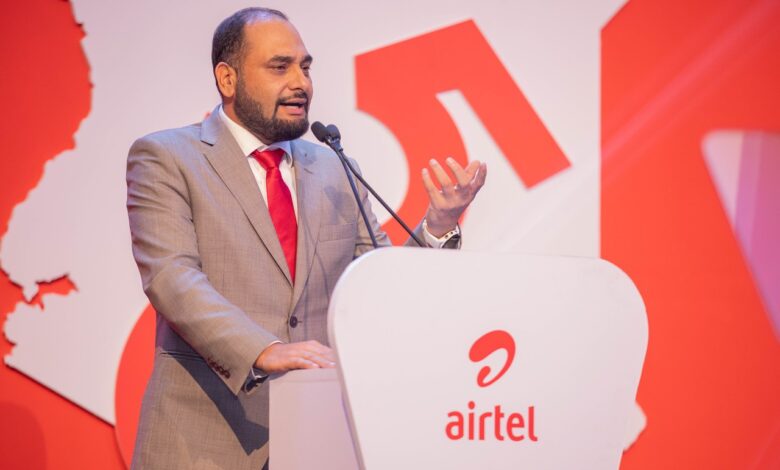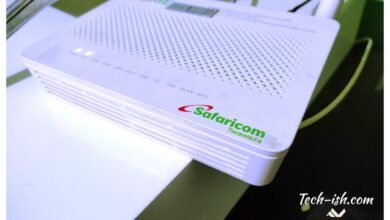
After years of riding on mobile growth and dabbling in wireless home internet, Airtel Kenya is finally moving into the fixed broadband arena. Close to two years since launching telesonic fibre to power digital Africa, the telco has confirmed that it is preparing to launch Airtel Fibre, marking its entry into a space long dominated by Safaricom, Faiba, and Wananchi’s Zuku.
The announcement came on September 9, 2025, during the groundbreaking ceremony of Airtel’s $150 million, 44MW data centre at Tatu City, which is expected to be East Africa’s largest. Airtel Kenya managing director Ashish Malhotra described the fibre rollout as “work in progress” and promised an official launch in the coming months.
But the move raises a critical question: why did Airtel wait until 2025 to join the home fibre party?
A late entry into a crowded room
Kenya’s fixed internet subscriptions reached 1.86 million in March 2025, up from 1.3 million a year earlier, according to the Communications Authority (CA). Safaricom leads with 36.5% market share, followed by Faiba at 22.5%, Zuku at 14.4%, and Poa Internet at 14.1%.
Airtel currently has zero presence in fibre and has relied on its Smartbox fixed wireless product, which goes for KES 2,000 a month for unlimited 15 Mbps. While the Smartbox comes with battery backup and antenna upgrades for stronger indoor coverage, it remains a stopgap solution compared to full fibre.
By waiting this long, Airtel is not just entering a competitive market. It is walking into a den of vipers. Unlike mobile data, where onboarding a customer is as easy as buying a SIM card or a router, fixed broadband is cartel-controlled. Property managers and landlords often cut exclusive deals with one ISP, locking out competitors. Lucikly for Airtel, the CA is cracking down on these monopolistic deals.
Can Airtel’s pricing playbook work in fibre?
If history is anything to go by, Airtel will likely try to undercut rivals on price, a tactic that has helped it gain ground in mobile data and even mobile money. The operator added 3 million new subscribers in Q1 2025, bringing its base to 24.5 million users (32.2% of market share), while Safaricom slipped to 63.3%.
Airtel Money has also grown to 9% of the mobile money market, with an IPO planned for 2026. Similarly, Airtel recently slashed 5G home internet prices while Safaricom is offering 25% discount for new subscribers in homes and MSMEs in fibre-ready buildings, intensifying the battle with Safaricom in the wireless broadband arena.
The fibre gamble, however, requires more than aggressive pricing. Airtel will need to lay new infrastructure, negotiate with landlords and estate managers, and convince skeptical households to switch from entrenched providers. And here lies the crux: can Airtel’s usual playbook of lower prices overcome the bureaucratic and cartel-like grip of Kenya’s fixed internet market?
Airtel should double down on wireless home internet instead
I think Airtel may be stretching itself too thin. Fixed fibre is expensive, politically messy, and urban-centric. Yet the real growth opportunity lies elsewhere: rural Kenya, where only 0.6% of homes have fixed internet.
Wireless 4G and 5G routers, which Airtel has been pushing, are far better suited for reaching these underserved markets. Even Safaricom has been fighting hard with bundled deals for its own 5G routers. This raises another question: would Airtel have been better off focusing on strengthening its wireless broadband instead of wading into the murky waters of fixed fibre?
As far back as 2021, Airtel’s best shot at beating Safaricom was in wireless 5G rather than fixed fibre. Today, that advice feels even more relevant.
Beyond reliability, it’s about trust
For years, Safaricom’s home fibre service has been seen as the most stable option in major cities, while Zuku has developed a reputation for unreliability. Faiba remains popular among streamers and heavy users, but customer frustrations with downtime and poor support persist across the board.
Airtel has a chance to present itself as the trustworthy alternative, but Kenyans are a skeptical bunch. As one online commenter joked after the launch announcement: “I wonder why Airtel didn’t just buy Zuku. They’re a match made in heaven when it comes to unreliability when you most need them.”
Will Kenyans switch?
Ultimately, the success of Airtel Fibre will come down to one thing: are Kenyans willing to give Airtel a chance in a sector where incumbents have already locked in customers and estates?
For households that have suffered through patchy connections, dropped video calls, or endless buffering, the appeal of a new player promising reliability and better pricing is strong. But Airtel must also prove it can overcome the estate cartels, deliver consistently, and not just enter late, but enter right.
So, if Airtel Fibre came to your doorstep tomorrow, would you switch? Or should Airtel stick to dominating the wireless broadband space where it already has momentum?






